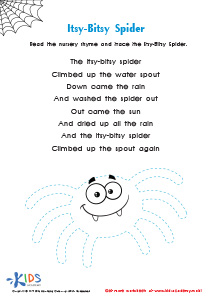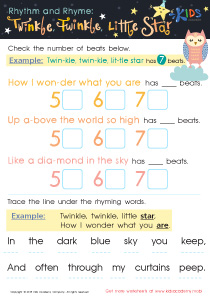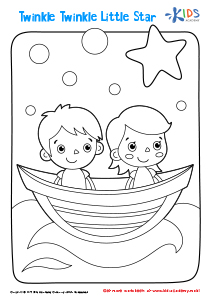Nursery Rhymes Worksheets for Ages 6-9
5 filtered results
-
From - To
Discover our engaging Nursery Rhymes Worksheets for children aged 6-9! These fun, printable resources are designed to boost literacy skills while making learning enjoyable. Each worksheet features popular nursery rhymes that encourage the development of language skills, reading comprehension, and creative expression. Your child will love completing activities that include rhyming practice, fill-in-the-blank exercises, and coloring pages themed around beloved nursery rhymes. Perfect for parents, teachers, or caregivers, our worksheets make excellent supplemental learning tools at home or in the classroom. Spark your child's love for poems and rhythm with our delightful nursery rhyme activities today!
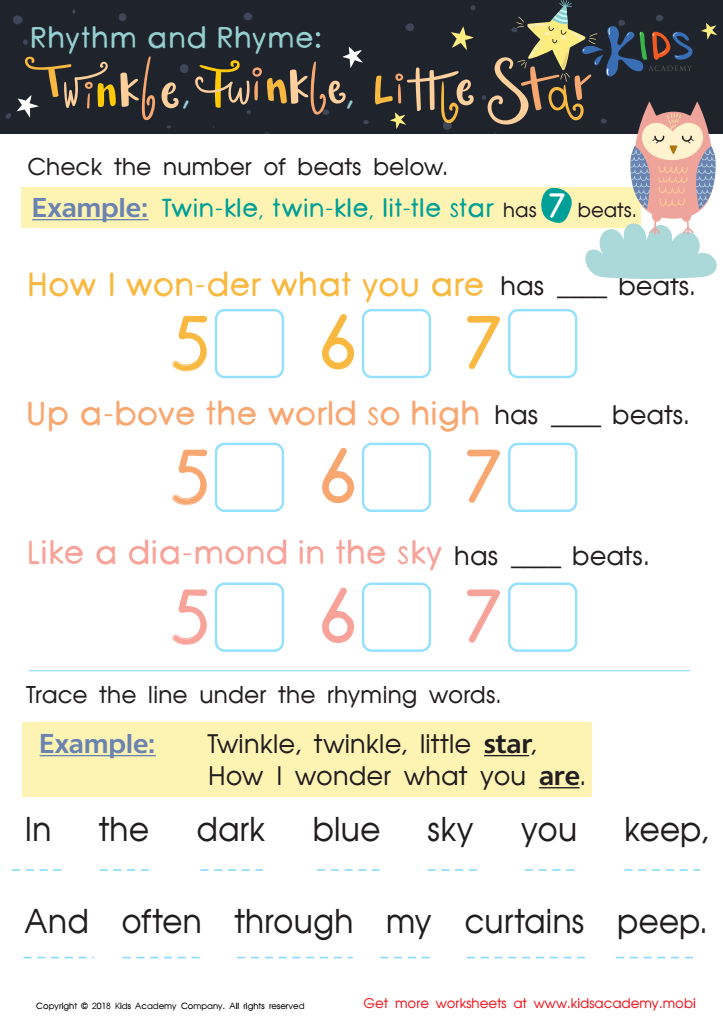

Rhythm and Rhyme: Twinkle, Twinkle, Little Star Worksheet
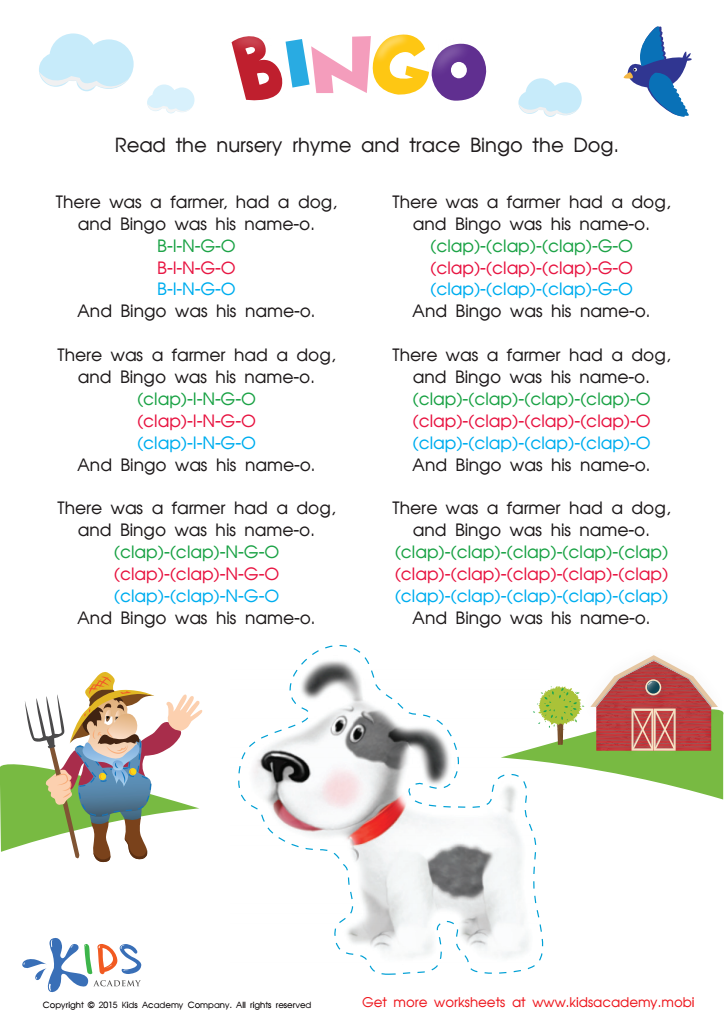

Nursery Rhymes: The Bingo Song Worksheet


The Five Little Monkeys Nursery Rhyme Worksheet
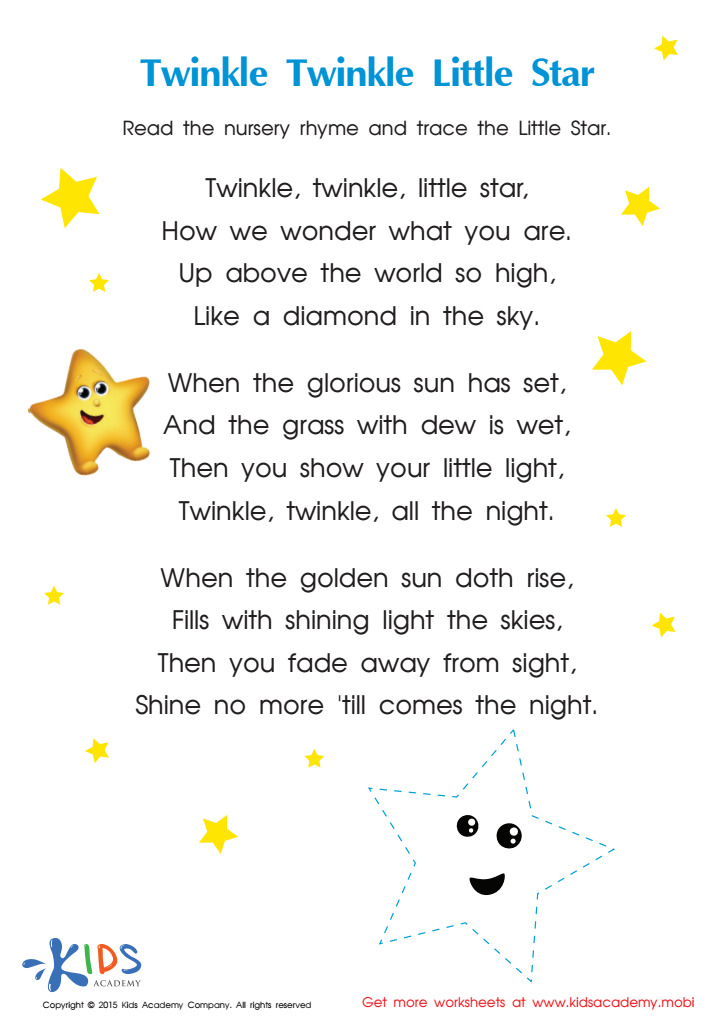

Nursery Rhymes: Twinkle Little Star Worksheet
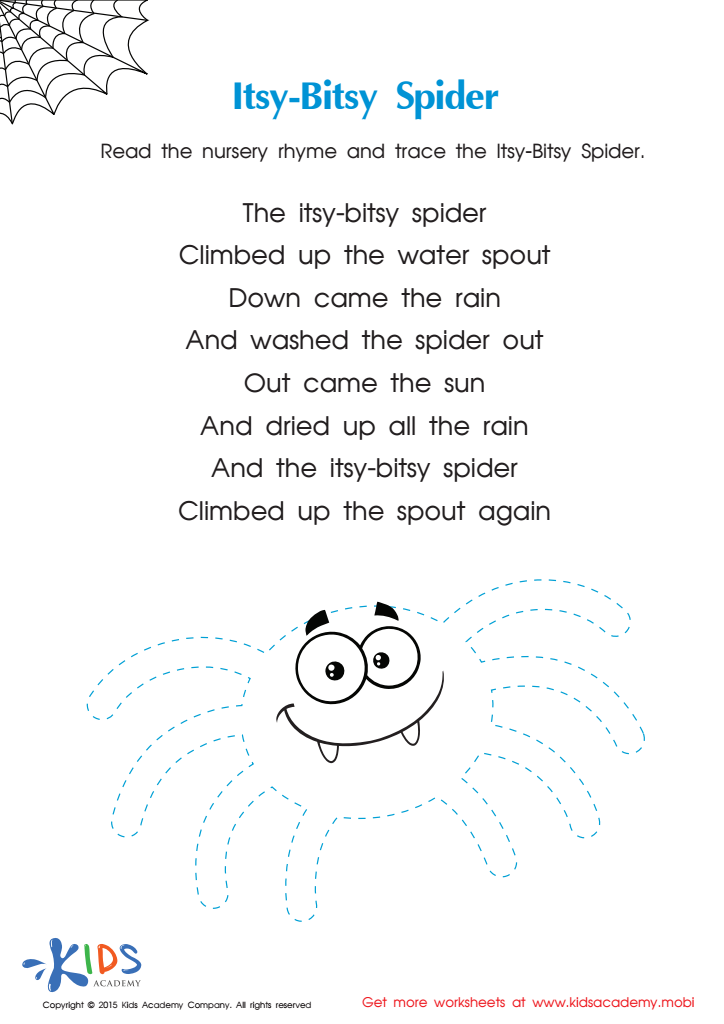

Itsy Bitsy Spider Nursery Rhyme PDF Worksheet
Nursery rhymes for children aged 6 to 9 play a significant role in early literacy and cognitive development. At this stage, children are refining their language skills, and exposure to nursery rhymes helps enhance vocabulary, phonemic awareness, and rhythm. The repetitive and rhythmic qualities of nursery rhymes make them enjoyable and engaging, allowing children to easily remember words and phrases.
Moreover, nursery rhymes foster a love for language and storytelling, bridging the gap between oral and written traditions. This age group is also developing critical thinking and comprehension skills; nursery rhymes, often rich in imagery and narrative, can ignite children's imagination and stimulate discussions about themes and morals.
Additionally, nursery rhymes promote social bonding; whether sung or recited together with parents or teachers, they create shared experiences that strengthen relationships. They also serve as cultural touchstones, introducing children to linguistic patterns and storytelling traditions from diverse backgrounds.
In summary, embracing nursery rhymes for 6- to 9-year-olds enriches their language skills, stimulates literacy development, enhances creativity, and fosters meaningful connections, making them an essential component of early childhood education.
 Assign to My Students
Assign to My Students


.jpg)





